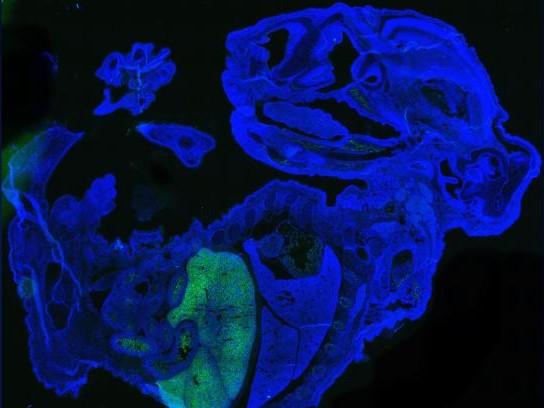Scientists make 'human-mouse chimera' that's 4% human
Human-animal hybrid could have significant implications for the treatment of diseases

Your support helps us to tell the story
From reproductive rights to climate change to Big Tech, The Independent is on the ground when the story is developing. Whether it's investigating the financials of Elon Musk's pro-Trump PAC or producing our latest documentary, 'The A Word', which shines a light on the American women fighting for reproductive rights, we know how important it is to parse out the facts from the messaging.
At such a critical moment in US history, we need reporters on the ground. Your donation allows us to keep sending journalists to speak to both sides of the story.
The Independent is trusted by Americans across the entire political spectrum. And unlike many other quality news outlets, we choose not to lock Americans out of our reporting and analysis with paywalls. We believe quality journalism should be available to everyone, paid for by those who can afford it.
Your support makes all the difference.Researchers have created an embryo containing both human and mouse cells in a major advancement of genetically modified organisms.
The hybrid embryo, referred to as a human-animal chimera, was grown by a team at the State University of New York at Buffalo and the Roswell Park Comprehensive Cancer Center.
The mouse embryo contained 4 per cent human cells – a far higher proportion than had ever previously been achieved.
“It has not been possible to generate naïve human [stem cells] that substantially contribute to mouse embryos,” a paper detailing the research states.
“The generation of chimera-competent naïve [stem cells] unifies some common features of naïve [stem cells] in mammals and may enable applications such as human organ generation in animals.”
The experiment involved human blood cells and eye cells, proving that it is possible to generate mature human cells at a much quicker rate than is possible in a human embryo.
This could have significant implications for the treatment of human diseases, including the Covid-19 coronavirus, as it allows for cells, tissues or organs to be grown for research purposes.
The scientists injected human stem cells into the mouse embryo and allowed them to develop for two weeks. When they analysed the embryo, they discovered human cells in the mouse's liver, brain, eyes, heart, blood and bone marrow.
The scientists did not gestate the embryo further, though there have been previous incidents where researchers have produced chimera hybrids beyond the foetus stage.
In 1984, scientists created a sheep-goat hybrid that survived into adulthood. More recently, scientists in China created two monkey-pig chimeras, however they only survived for a few weeks after being born.
The research was published in the journal Science Advances.
Join our commenting forum
Join thought-provoking conversations, follow other Independent readers and see their replies
Comments